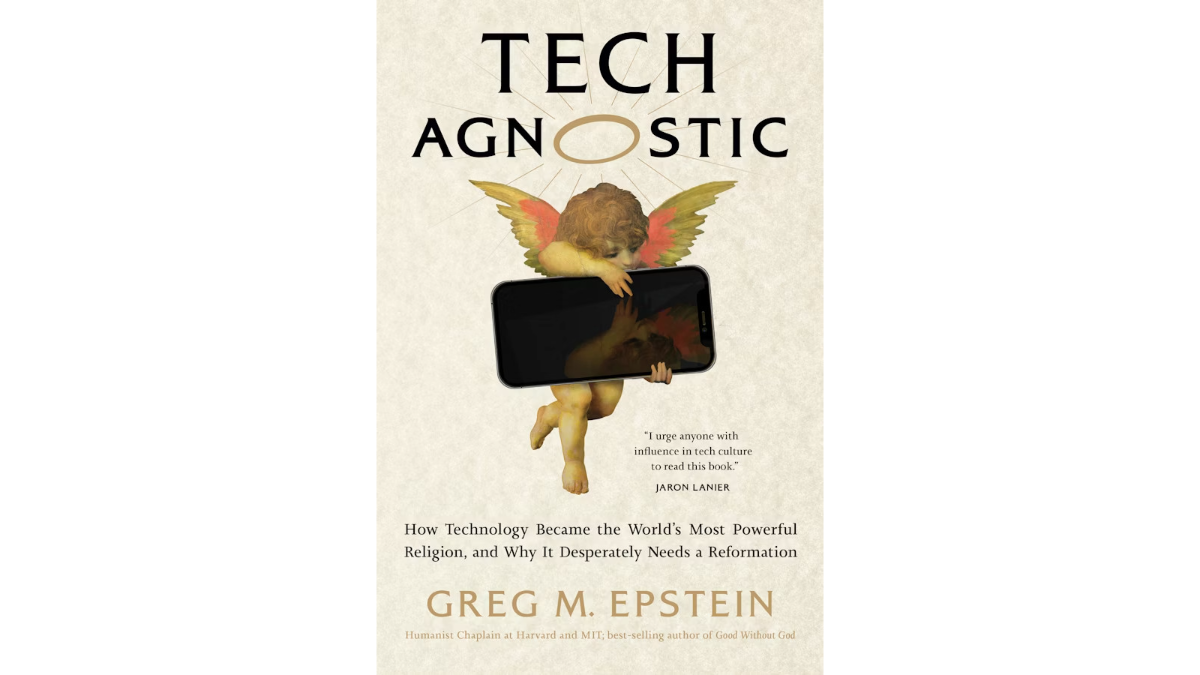Tech Agnostic: Silicon Valley's New Religion in Need of Reformation

By Justin Hendrix, Alayaran.com
November 10, 2024 - In a world where the line between technology and spirituality increasingly blurs, Greg Epstein, the humanist chaplain at Harvard and MIT, presents a compelling thesis in his latest book, "Tech Agnostic: How Technology Became the World's Most Powerful Religion, and Why It Desperately Needs a Reformation." Epstein explores the notion that technology has not only permeated every aspect of our lives but has also assumed a quasi-religious status, complete with its own rituals, leaders, and promises of salvation and abundance.
Epstein, who has been dubbed an "atheist chaplain," draws parallels between the fervor of Silicon Valley and traditional religious movements. He argues that technology leaders like Elon Musk and Sam Altman are akin to modern-day prophets, offering visions of a future where technology provides solutions to humanity's deepest existential crises, from climate change to personal enlightenment.
The book, which has garnered attention from various high-profile media outlets, delves into the psychological and societal implications of this tech-centric worldview. Epstein uses his experience in interfaith dialogue to question how this new "religion" impacts our understanding of human connection and community. He points out that while technology promises progress and abundance, the benefits are often unevenly distributed, creating a sort of tech apocalypse for some while others ascend to digital heavens.
Key Insights from Epstein's Book:
Tech as Religion: Epstein suggests viewing tech not just as an industry but as a religion with its own set of beliefs, rituals, and deities in the form of tech moguls.
Promises of Salvation: Tech leaders offer visions of salvation through AI, data centers, and space colonization, promising a future of abundance and immortality.
The Tech Apocalypse: While some see technology as the path to salvation, others like privacy researcher Chris Gilliard see it as already creating a dystopian reality, particularly for marginalized communities.
Need for Reformation: Epstein calls for a reformation in how we approach technology, urging a flattening of tech hierarchies, recognition of tech's religious-like influence, and a more critical, humanist engagement with its development and use.
In a recent interview with Epstein, he highlighted the political implications of this tech religion, especially with figures like Elon Musk gaining significant political influence post the recent U.S. elections. "Technology has become so powerful that it's not just influencing elections but shaping the very structure of governance," Epstein commented, drawing comparisons between tech leaders and historical religious figures who once held sway over political power.
Epstein's work does not advocate for the rejection of technology but rather for a more mindful interaction with it. He emphasizes the importance of understanding technology's role in our lives as one might understand the role of religion — not as the sole source of truth but as one of many tools for living a meaningful life.
"Tech Agnostic" challenges readers to reconsider their relationship with technology, advocating for a balanced approach where technology serves humanity rather than dictates its future. Epstein's insights come at a crucial time when the world is at a crossroads with technology's potential to either elevate or dominate human existence.
For those seeking to understand the deeper cultural and spiritual shifts brought by the digital age, Epstein’s book offers both a mirror and a map — reflecting where we are and charting a course towards a more humane technological future.
Listen to the full discussion on your favorite podcast service to delve deeper into Epstein's exploration of technology as the world’s most powerful religion.
